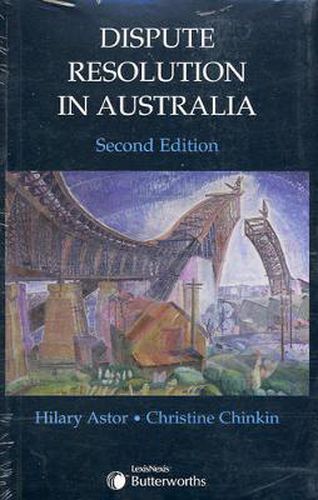Readings Newsletter
Become a Readings Member to make your shopping experience even easier.
Sign in or sign up for free!
You’re not far away from qualifying for FREE standard shipping within Australia
You’ve qualified for FREE standard shipping within Australia
The cart is loading…






The 2nd edition of this book provides an accessible, coherent and critical treatment of dispute resolution in Australia, and been restructured to take account of the considerable changes in alternative dispute resolution (ADR). Throughout the book, dispute resolution methods are considered in a theoretical, critical and evaluative light. A range of ADR processes across a spectrum of applications is considered, with special attention given to commercial, family, discrimination and international disputes. Insights drawn from domestic and international contexts are combined in a unique way throughout the book. While having a predominantly Australian focus, appropriate comparisons from other jurisdictions are frequently made. The book locates debates surrounding ADR in the context of the politics of gender and other aspects of identity, while examining the influences of other contemporary legal theories on ADR. It considers ADR in both its social and political contexts. This book will be useful to scholars of ADR, as well as lawyers, policy-makers, practitioners and students of dispute resolution.
$9.00 standard shipping within Australia
FREE standard shipping within Australia for orders over $100.00
Express & International shipping calculated at checkout
The 2nd edition of this book provides an accessible, coherent and critical treatment of dispute resolution in Australia, and been restructured to take account of the considerable changes in alternative dispute resolution (ADR). Throughout the book, dispute resolution methods are considered in a theoretical, critical and evaluative light. A range of ADR processes across a spectrum of applications is considered, with special attention given to commercial, family, discrimination and international disputes. Insights drawn from domestic and international contexts are combined in a unique way throughout the book. While having a predominantly Australian focus, appropriate comparisons from other jurisdictions are frequently made. The book locates debates surrounding ADR in the context of the politics of gender and other aspects of identity, while examining the influences of other contemporary legal theories on ADR. It considers ADR in both its social and political contexts. This book will be useful to scholars of ADR, as well as lawyers, policy-makers, practitioners and students of dispute resolution.